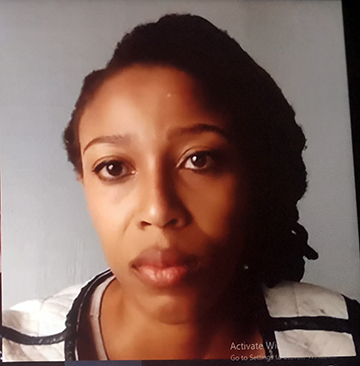
As part of Unisa’s efforts in decolonising higher education, contemporary discourses have revived Africanisation. In seeing through this work, the Department of Leadership and Transformation recently launched its 2021 webinar series on Reclaiming Africa’s Intellectual Programme entitled Engaging Robert Mangaliso Sobukwe. The aim of the series is to excavate marginalised knowledges from South Africa (SA) and the African continent to enhance Unisa’s already rich grounding in African epistemologies.
In her opening address, Unisa’s Professor Zodwa Motsa Madikane, Executive Director: Leadership and Transformation, explained that the webinar was about celebrating Sobukwe month. “It focuses on a broad conversation on who Sobukwe was and what his contributions were to our current and future efforts to African ways of knowing and being,” she said.
Thand’ Olwethu Dlanga, of the University of Pretoria, made a presentation entitled Robert Mangaliso Sobukwe and the path of returning to the source. Dlanga briefly explained that Sobukwe was a product of a historical and social context that created his conception of the future of Africa and the world. “He was an ‘Africa reborn’, free from colonial domination and a compassionate world,” he said. “Sobukwe stems from dominated, dehumanised and dispossessed people, who had their knowledge systems obliterated by the imperialist, colonialist and apartheid government.” He said that the government viewed, defined and classified Africans and any other persons of black or brown pigmentation as “non-beings”.
“Educationally, Sobukwe’s development was a violent one imposed by a settler-colonial machinery,” he added. “Sobukwe and his peers traversed a revolutionary path to re-affirm in theory and praxis the right to take their place in history as full human beings, not amakwedini/bashemane or mere tea girls.” Dlanga remarked that Sobukwe rightly proclaimed a fight for a right to call their souls their own.

Palesa Nqambaza (One of the presenters at the Reclaiming Africa's Intellectual Programme webinar)
Palesa Nqambaza, of the University of the Witwatersrand, presented on Rethinking the Sharpeville Massacre as a site of Multiple Negations. Nqambaza said: “I want to pay homage to Tat’u Sobukwe differently. I want to experiment with the question of what the Azanian tradition and legacy could possibly offer us in theorising gender. The Azanian tradition offers multiple resources and sites for alternative theorising of the formation of ‘black’ subject in the context of what we know as SA today. The question of how racialisation, in particular, of ‘blackness’, does not only culminate in the process of dehumanising black people, but, also complicates how the process of ‘gendering’ applies to black bodies.” According to Nqambaza, there is a need to explore what happens when the ideas of ‘woman’ and ‘black’ converge.
She shared the history of pass law resistance as possible resistance against the process of racialisation. She said: “The history of pass law resistance began when black women marched against it, in 1956.” She remarked: “Passes instrumentalised the restriction of movement of Africans and were key to the process that sought to reduce Africans to a mere natural resource for colonial labour extraction. African people are condemned to the category of ‘blackness’, which is a negation of being and is evident how the category of ‘women’ then comes to elide blacks as ‘non-beings’.”
Ayabulela Mhlahlo, also from the University of the Witwatersrand, presented on Unravelling Sobukwe’s Internal World. Mhlahlo briefly shared her reading about iconic figures, suggesting that they turn to be looked at from a sense of praise or worship, and through historical or political perspective, and no longer as persons in history. “We need to ask what position would Sobukwe have taken regarding decolonising knowledge,” she said.
Unisa’s Professor Edith Phaswane, Acting Head: Academic Programmes at the Thabo Mbeki African School of Public and International Affairs, highlighted that Sobukwe’s legacy had been a troubled one in the apartheid and post-apartheid era. “The works and ideas of Robert Sobukwe had suffered from intellectual neglect,” she said. “There had been many attempts, especially in this country, to mute him. “Sobukwe is the epitome of mute speaking, he spoke under house arrest, under solitary confinement, and continues to speak in his grave.” She stated that Sobukwe’s legacy had been the prerogative of activism with less attention paid to his scholarly work. “In his political thought and action, Sobukwe was able to unmask the social structures in a form of the education system that keeps coloniality intact. It is not surprising that Sobukwe had to be silenced,” she concluded.
*Gugu Masinga, Marketing and Communication Specialist, Department of Leadership and Transformation
*Teaser image sourced from The Heritage Portal: www.theheritageportal.co.za.
Publish date: 2021-05-06 00:00:00.0